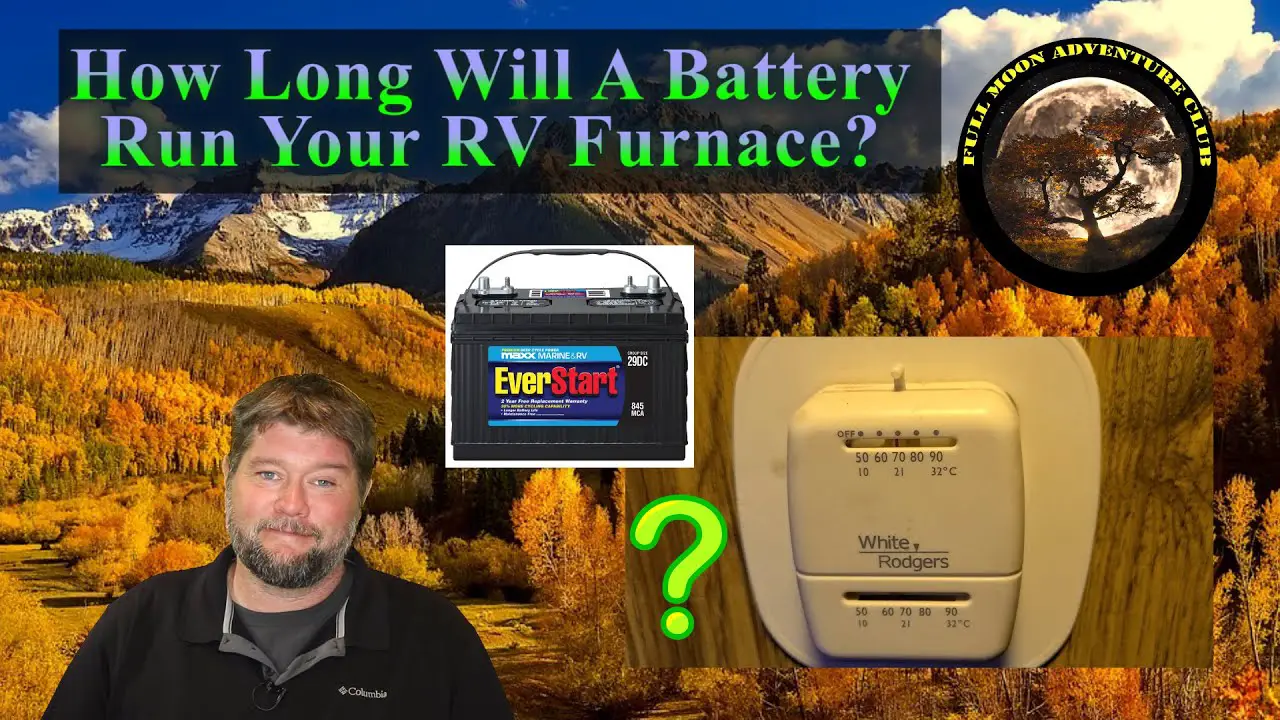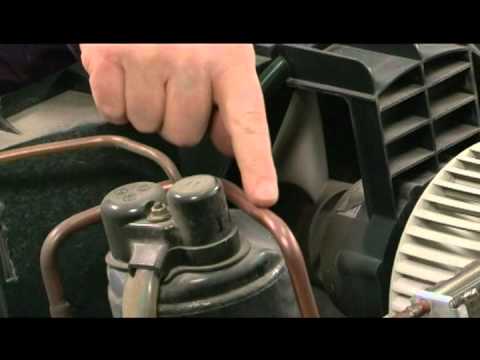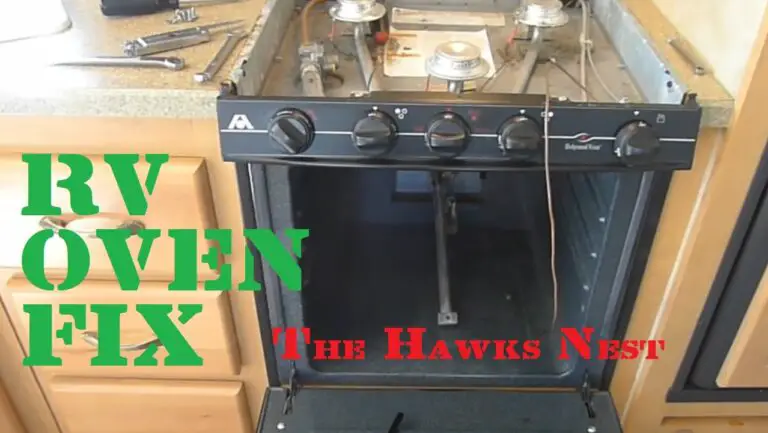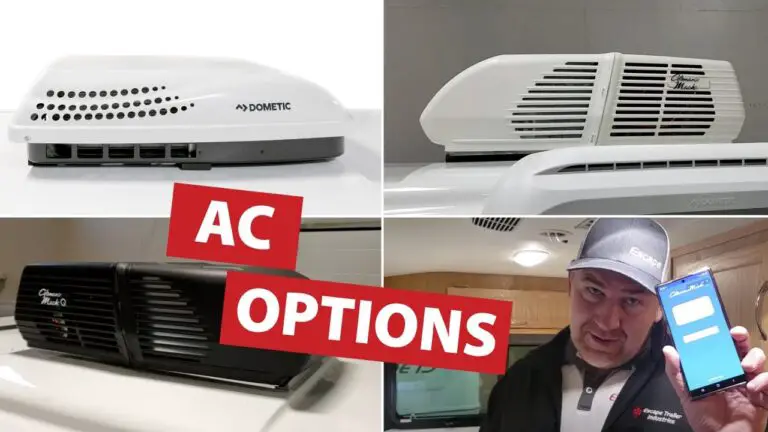Will RV Furnace Run on Battery
Yes, an RV furnace can run on battery power. RVs provide the convenience of a home away from home, allowing us to comfortably travel and explore the great outdoors.
One crucial aspect of RVing is staying warm during colder seasons. RV furnaces play a vital role in keeping the interior cozy and comfortable. However, it’s important to consider the power source for the furnace. While most RV appliances rely on propane or electricity, it is possible for an RV furnace to run on battery power.
This option allows for heating without the need for propane or electrical hookups, providing greater flexibility and independence while camping. We will explore the details of how an RV furnace operates on battery power, as well as the benefits and limitations of this setup. So, let’s dive in and find out more about running an RV furnace on batteries.
Understanding The Power Source For RV Furnaces
Understanding the power source for RV furnaces is essential for any RV owner. An RV furnace is powered by either a propane furnace or an electric furnace, and the choice between the two depends on several factors.
The propane furnace is the most common type of RV furnace and is fueled by propane gas stored in onboard tanks. This type of furnace is highly efficient and can provide reliable heat even in extreme weather conditions. However, it requires regular propane tank refills, which can be an inconvenience.
On the other hand, electric furnaces use electricity as their power source. They are typically connected to shore power or generator and rely on the RV’s batteries to function. While electric furnaces eliminate the need for propane refills, they can quickly drain the RV’s batteries, especially when used for extended periods.
When it comes to power requirements, propane furnaces are energy-efficient and draw power from the propane tanks. Electric furnaces, on the other hand, require a significant amount of electricity, so it’s important to ensure that the RV’s electrical system can support the furnace’s power demands.
Overall, both propane and electric furnaces have their advantages and limitations. It’s crucial to consider your power needs, camping preferences, and available resources when choosing the right furnace for your RV.
Power Supply Options For RV Furnaces
RV furnaces are a crucial component for a comfortable camping experience, especially during colder months. Understanding the power supply options for your RV furnace is essential.
One option is to directly connect the furnace to the RV battery. This ensures a steady power supply even when you are not connected to shore power. However, it is important to consider the battery capacity and ensure it can sustain the furnace’s power requirements.
Another option is to use an inverter for battery power. An inverter converts the DC power from the battery into AC power, which the furnace needs. This allows you to run the furnace using your RV’s battery, but it is important to note that inverters can drain the battery quickly, so monitoring battery levels is crucial.
Lastly, you can explore generator options to power your RV furnace. Generators provide a reliable source of power and can run the furnace effectively. However, they require fuel and regular maintenance.
Considering the power supply options available enables you to make an informed decision on how to run your RV furnace efficiently and ensure a comfortable camping experience.
Evaluating The Feasibility Of Running An RV Furnace On Battery
Running an RV furnace on battery power is highly dependent on several factors. The first step is to evaluate the furnace’s energy consumption. Understanding how much power it requires is crucial in determining the feasibility of using batteries as a power source.
Next, it is important to analyze the battery capacity and voltage. Different batteries have varying capacities and voltages, and the ability to power the furnace adequately relies on having a battery that can provide enough energy. Additionally, considering the impact of battery drainage is essential. Continuous operation of the furnace may drain the battery quickly, affecting the overall usability.
Ultimately, running an RV furnace on battery power requires careful consideration of the furnace’s energy consumption, battery capacity, and voltage, as well as the potential impact of battery drainage. By understanding these factors, RV owners can make an informed decision regarding the suitability of running their furnace on battery power.
Tips For Efficiently Running An RV Furnace On Battery
Tips for Efficiently Running an RV Furnace on Battery
Proper insulation and ventilation are essential for ensuring the efficient running of an RV furnace on battery. Insulate your RV properly by using window insulators and thermal curtains to prevent heat loss. Make sure there are no gaps or leaks that could allow cold air to enter. Seal any openings or cracks using weatherstripping or caulk. Remember to check your RV’s insulation regularly to maintain its effectiveness.
To enhance ventilation, ensure that all vents and airways are clear and unobstructed. Clean or replace air filters regularly to maximize air circulation and maintain optimal furnace performance. Efficiently running the RV furnace on battery also involves utilizing thermostat settings wisely. Lower the temperature setting when you’re away or sleeping to conserve battery power and only heat the areas you’re using.
If you’re looking for alternative heating methods, consider using portable electric heaters or propane heaters as supplementary sources of warmth. Always follow the manufacturer’s instructions and safety guidelines when using alternative heating devices. By taking these measures, you can ensure efficient operation of your RV furnace on battery, keeping you comfortable during your travels.

Credit: www.amazon.com
FAQs Of Will RV Furnace Run On Battery
Will An RV furnace Run On Battery Power?
Yes, an RV furnace can run on battery power. Most RV furnaces are designed to operate on both electricity and propane, utilizing the battery power to ignite the propane and power the blower. However, keep in mind that running the furnace on battery power for long periods can drain the battery quickly.
It’s recommended to have a backup power source or ensure a full battery charge before using the RV furnace extensively.
How Long Will An RV Furnace Run On Battery?
The duration an RV furnace can run on battery power depends on factors such as the size and capacity of the battery, the outside temperature, and the furnace settings. On average, an RV furnace can run on battery power for approximately 8 to 12 hours before it drains the battery completely.
It’s essential to monitor the battery level and have a backup power source if needed for extended use.
Can An RV furnace Drain The Battery Overnight?
Yes, an RV furnace can drain the battery overnight, especially if it’s being used continuously in extremely cold weather. The furnace consumes a significant amount of power, especially when running the blower motor. It’s crucial to check the battery level regularly, have a backup power source, or consider alternative heating options to prevent a drained battery overnight.
Can Solar Panels Recharge An RV Furnace Battery?
Solar panels can help recharge the RV furnace battery. By harnessing the sun’s energy, solar panels convert it into electricity, which can then charge the RV battery, including the furnace battery. By utilizing solar power, you can reduce dependency on traditional charging methods and maintain a steady power supply for the furnace, even in remote locations.
Conclusion
Having a reliable power source is crucial when using an RV furnace. While it is possible to run the furnace on battery power, there are a few considerations to keep in mind.
Understanding the power requirements of your furnace and the capabilities of your RV’s battery system is essential.
By taking necessary precautions and ensuring an adequate power supply, you can enjoy a warm and cozy environment in your RV even when you are off-grid.







